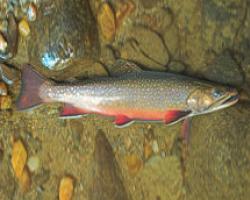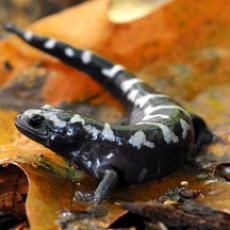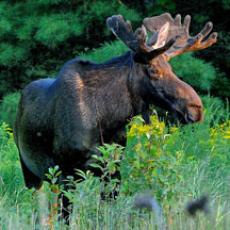AMHERST, Mass. – A coalition of research institutions, including the University of Massachusetts Amherst and the state’s fish and wildlife agency, this week unveiled a new online tool for use by local decision-makers, conservation managers, land trusts, regional planners, landowners and community leaders in Massachusetts who are interested in taking action in response to climate change.
With the Massachusetts Wildlife Climate Action Tool, users can access information on climate change impacts and the vulnerabilities of various fish and wildlife species and their habitats. The tool, which can expand as new information becomes available and partners join, also allows users to explore adaptation strategies and actions to help maintain healthy, resilient natural communities in the face of climate change.
The online tool was developed by the Massachusetts Climate Adaptation Partnership, made up of the Massachusetts Division of Fisheries and Wildlife (MDFW), Center for Agriculture, Food, and the Environment at UMass Amherst, the Department of Interior’s Northeast Climate Science Center at UMass Amherst and the U.S. Geological Survey’s (USGS) Massachusetts Cooperative Fish and Wildlife Research Unit.
John O’Leary, assistant director of wildlife with MDFW, says, “While there is an overwhelming amount of information on climate change, it is often not easily accessible to the public and it can be challenging to incorporate scientific information into day-to-day management and planning.”
“The climate action tool focuses on what people can do now to reduce climate change impacts on natural resources such as fish, wildlife, and their habitats, in the coming decades. Users can access information and data from the scientific literature that have been synthesized by scientists for the tool,” he adds.
The tool synthesizes the best available science, providing information on:
climate change impacts, with projections for over 30 climate variables
vulnerability assessments for fish and wildlife species and habitats
information about non-climate stressors such as development and loss of landscape connectivity that must be accounted for
on-the-ground actions including forestry practices, land protection and restoring landscape connectivity
Michelle Staudinger, an ecologist with the USGS and adjunct faculty member in the department of environmental conservation at UMass Amherst, says the climate is changing rapidly in Massachusetts in ways that have already had an effect on human and natural communities across the state.
“But there are actions we can take now to adapt to climate change and protect fish, wildlife and their habitats, as well as help human communities increase resiliency to better cope with these changes,” she points out. “This tool is designed to inform and inspire local action to protect the Commonwealth’s natural resources, including species of greatest conservation need, and help them adapt to a changing climate.”
The tool features a variety of species and habitats, including brook trout, an iconic species in Massachusetts that is affected by warming stream temperatures and fragmented habitat. The tool offers adaptation actions that users can take to help brook trout, including restoring stream buffers where trees help maintain cold water habitat, and improving connectivity by replacing impassable culverts.
Other species and habitats include:
marbled salamander, affected by changing rainfall patterns
moose, at the southern end of their range and may be negatively affected by milder winters that can favor ticks and other parasites
blackpoll warbler, vulnerable to changing forest habitats conditions and
beech-birch-maple forests, where warming temperatures affect sugar maples and other northern trees
Scott Jackson, UMass Amherst extension associate professor in the department of environmental conservation, says, “This tool makes science available to inform on-the-ground action, the information provided is research-based and vetted by scientists. It provides adaptation information that can be integrated into a comprehensive climate adaptation plan for an organization or community, including local actions related to land protection, forestry practices, and connectivity across roads and highways. It provides links to relevant resources and experts who can offer additional information and assistance in implementing actions, such as replacing a culvert or conserving land.”
Robert A. Jonas, chair of the board of trustees of Kestrel Land Trust, adds, “We need up-to-date information and guidance about how we can help our 19 communities adapt to climate change, so we are thrilled to discover the Massachusetts Climate Action Tool. In one online package, we can research climate change impacts on fish and wildlife species, forests and forestry practices, landscape connectivity, land protection and conservation planning.”
The tool’s developers say that although it was designed for Massachusetts, it offers broadly relevant information and can serve as a model for the Northeast. Future updates could include more on transportation, coastal areas and municipal planning.
More: Massachusetts Wildlife Climate Action Tool


